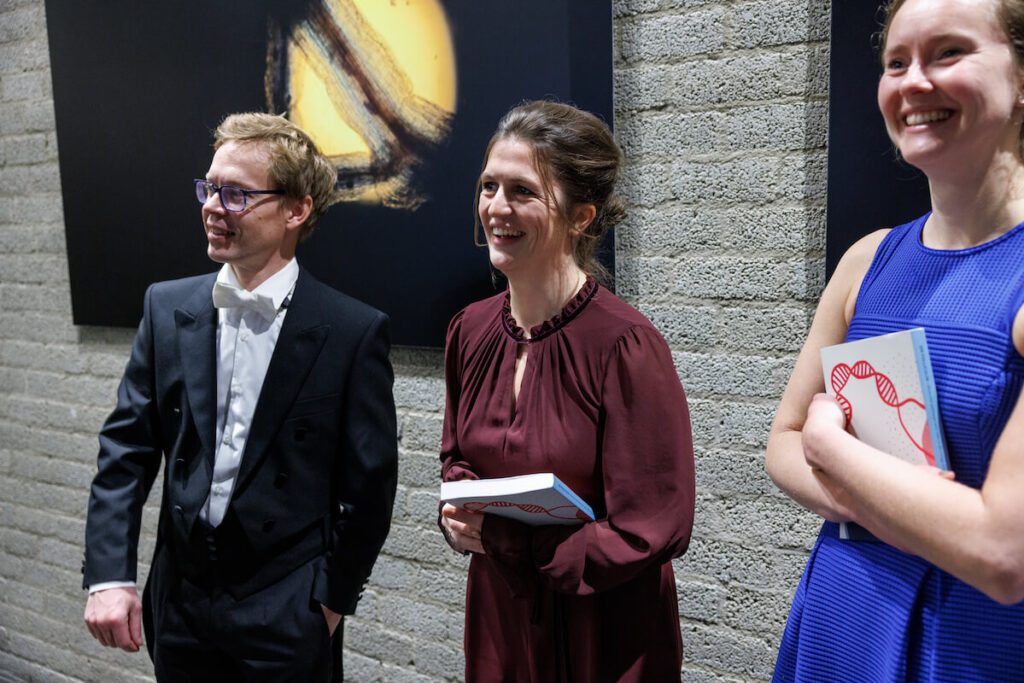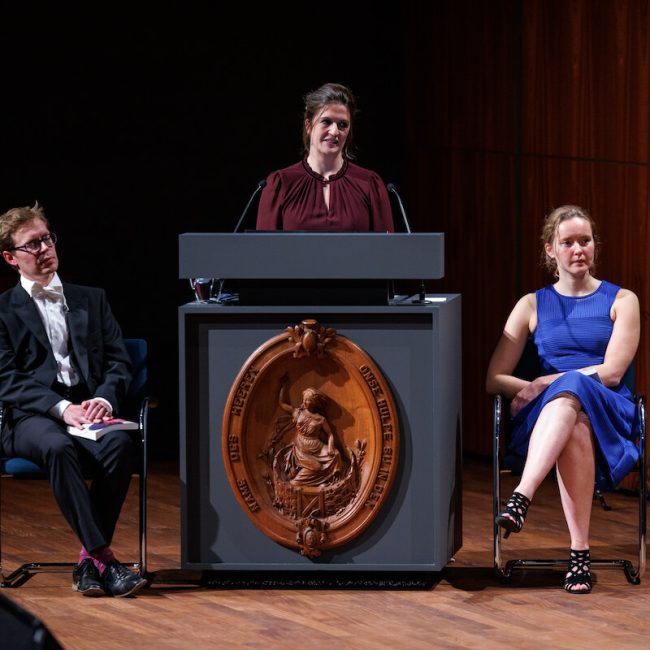Celebrating Progress
Combining Clinical and Fundamental Research
SECTION: ONCOGENETICS
The department of Human Genetics Amsterdam UMC houses the national expertise center for Birt-Hogg-Dubé (BHD) syndrome. With more than 450 patients diagnosed in our DNA diagnostics laboratory, the BHD expertise center is one of the largest in the world.


Dr. Rob Wolthuis and Dr. Arjan Houweling at the Department of Human Genetics are the leading principal investigators and connect clinical research with BHD patients with fundamental molecular research. On November 22nd, 2022, an informative mini-symposium was held, followed by the PhD graduations of Irma van de Beek and Iris Glykofridis, marking progress in our understanding of the etiology of this rare hereditary disease.
Birt-Hogg-Dubé syndrome is a rare genetic disease that predisposes individuals to an increased risk of kidney cancer. BHD patients also frequently develop benign skin lesions (fibrofolliculomas) in facial or chest hair follicles, and are more prone to pneumothorax (collapsed lung). In 2002, mutations in the folliculin (FLCN) gene were identified as the underlying genetic culprit of BHD. However, the function of this gene has remained enigmatic, and not all patients with symptoms of BHD show alterations in their FLCN gene.
Klaas de Lint and Dr. Rob Wolthuis
Celebrating progress in BHD research
A mini-symposium at the Vrije Universiteit Amsterdam was held in 2022, with BHD patients as well as experts attending. The current knowledge of BHD syndrome was reviewed by Professor Andrew Tee, Cardiff University, UK, and our former colleague Dr. Fred Menko.
This symposium was followed by two PhD defenses involving graduate students Irma van de Beek and Iris Glykofridis. Both candidates spent several years unravelling critical aspects of Birt-Hogg-Dubé syndrome.
For her thesis, clinical geneticist Irma van de Beek investigated clinical aspects and cancer predispositions of BHD and patients with symptoms similar to BHD. Supported by shared co-promotor Dr. Arjan Houweling (Section Clinical Genetics), Irma discovered two novel candidate BHD-related syndromes and their underlying genes.


Under supervision of head of the Section Oncogenetics and co-promotor Dr. Rob Wolthuis, molecular biologist Iris Glykofridis elucidated the biochemical pathways and gene expression changes that are key cellular alterations promoting the kidney tumorigenesis associated with this disease.
Their research opens the door to exciting new opportunities to identify underlying mechanisms behind the formation of BHD cancer. This can help to reveal novel biomarkers and possible options for targeted therapies to be explored in the future.
“These advances in our understanding of BHD syndrome, with the help of many actively participating patients, clearly demonstrate the strength of collaborations between research lab and clinic, leading to the discovery of novel candidate prognostic biomarkers and putative options for targeted therapies. We will explore these further in the near future.” Dr. Rob Wolthuis, head of Section Oncogenetics.
More information and news from the Section Oncogenetics is now available on their website: oncogenetics.nl.